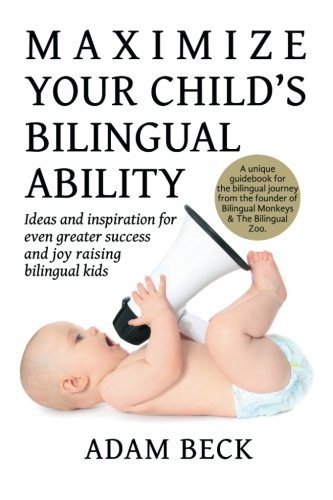Tips For Submitting Minority Language to Memory
/Bilingual Children - Week #13
All words are equal, but some words are more equal than others
When I started attaching a word of the day to the front door back in September 2016. I didn’t have a real plan: I didn’t know how long it would have lasted for, I didn’t focus on any particular group of words.
I didn’t set a target. It was only my genuine desire to grow my son’s vocabulary in the minority language. A simple yet unrefined attempt to boost the number of words he could understand and pronounce in Italian.
It was a Monday to Friday exercise and started almost by chance.
Things have moved on from that September and although the delivery of the word on the door hasn’t changed, some considerations and small changes have been made along the way.
Credit: Freepik
Which words?
Where did I get my words from? At first just randomly picking words from day to day life. No particular order, selection or structure. I then started grouping words by topic: animals, vegetables, plants, games, objects in the house.
Now I tend to write down several words in advance choosing from a specific topic and then produce them each day over a certain period of time. In particular, when I read my son a bedtime story, I always find at least 2/3 words that will be added to my list.
I realised this month that we've reached 400 words since I started!
It seems to be a very large number and I am pleased with it. However, it’s also true that:
Not all the words will be remembered in an equal way.
The majority of words that will be remembered are because we use them frequently in our daily conversations.
Other words won’t stick.
I am not sure what the real reason for this is: perhaps they are not so common in everyday life, sometimes they are widely used in Italian but somehow, they don’t roll off my son’s tongue (The very same thing happens to me with some English words).
Submitting a word to memory
In order to make the word of the day to stick more systematically I do the following:
Attach the word of the day in the morning. If you are still at home when the children get up, ask them to check it, read it, repeat it and use it in a sentence.
The first thing I do in the evening when I come back home is to ask what the word of the day was. I then try to fit that particular word in our evening conversation (at least 2 to 3 times).
At the weekend I collect the 5 words of the day and we go through them with the correct pronunciation, the meaning and how to use them in real life situations.
I try to make a mental note of the words that haven’t worked as well as I expected and I try to juggle them in future conversations. I've noticed that insisting on some specific words does work. Repetitions and regular use definitely improve the absorption.
Credit: Freepik
Age matters
One very important element to consider is the age of your child. When they are up to 4 years old, simple words about the world around them work well.
As children grow the complexity of the conversations they will need to be able to have will increase. With that the type of words you teach them needs to change as well.
We have moved from simple words referring to an object (Apple, dog) to words and adjectives that have deeper and wider meaning.
Essere generoso = To be generous
Fare bella figura = To make a good impression
Ammirare qualcuno = To admire someone
We have also started writing typical Italian (Although still basic) expressions to create a chance to mimic the real spoken Italian. Such as:
Cadere dall’albero, come una pera = Fall from the tree like a pear
Avere la testa fra le nuvole = To have your head in the clouds
Minority is still a priority
One very important piece of advice I received years ago, came from a dear Italian friend of mine. He lived in the US and got married to an American.
He told me, not to be tempted to switch from the minority language to the dominant one (provided that you speak that language) when tacking delicate or complicated conversations/issues with your children.
Sometimes, we need to discuss or teach important issues, perhaps related to school, behavior, personal relationships that require a higher degree of explanation. Situations when we need to make sure our children understand the boundaries they shouldn’t cross for any reason (personal safety or relationships with strangers etc).
The level of conversation goes up a few notches because the intrinsic nature of the topic. Unfortunately, depending on each case and child, the child can't always master the minority language well enough to fully understand every single word needed.
However do not abandon the minority language every time some more detailed explanation is required. Try to break down the concept in several simpler sentences and go from there. Try to build some foundations and take the time to deconstruct the concept in several parts so that children understand the background of the situation.
It doesn’t matter if not all the words are understood. Ideally they will also hear the same story in the dominant language from the other parent and can start joining the dots for the minority side too.
Credit: Freepik
Keep going!
It’s fundamental that children perceive an equal value of the two languages no matter how serious or important the topic is. They might have a few more questions on individual words they heard for the first time or require some further explanation on what to do and not to do. Be patient and keep going!
Words of the day
This week we learned the following words/expressions:
Monday: Tenere la bocca cucita = Keep your mouth sewn (Don't say a word).
Tuesday: Se tiri la corda, prima o poi si spezza = If you pull the rope, sooner or later it breaks.
Wednesday: Aver paura della propria ombra = To be afraid of your own shadow.
Thursday: Cercare un ago in un pagliaio = Look for a needle in a haystack.
Friday: Conoscere qualcosa come le mie tasche = To know something like the back of your hand.















(1).jpg?w=300&h=250)





.jpg)








